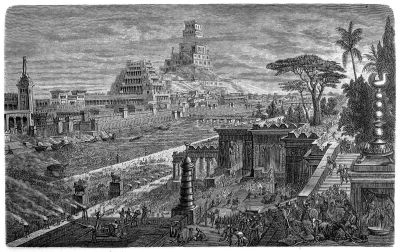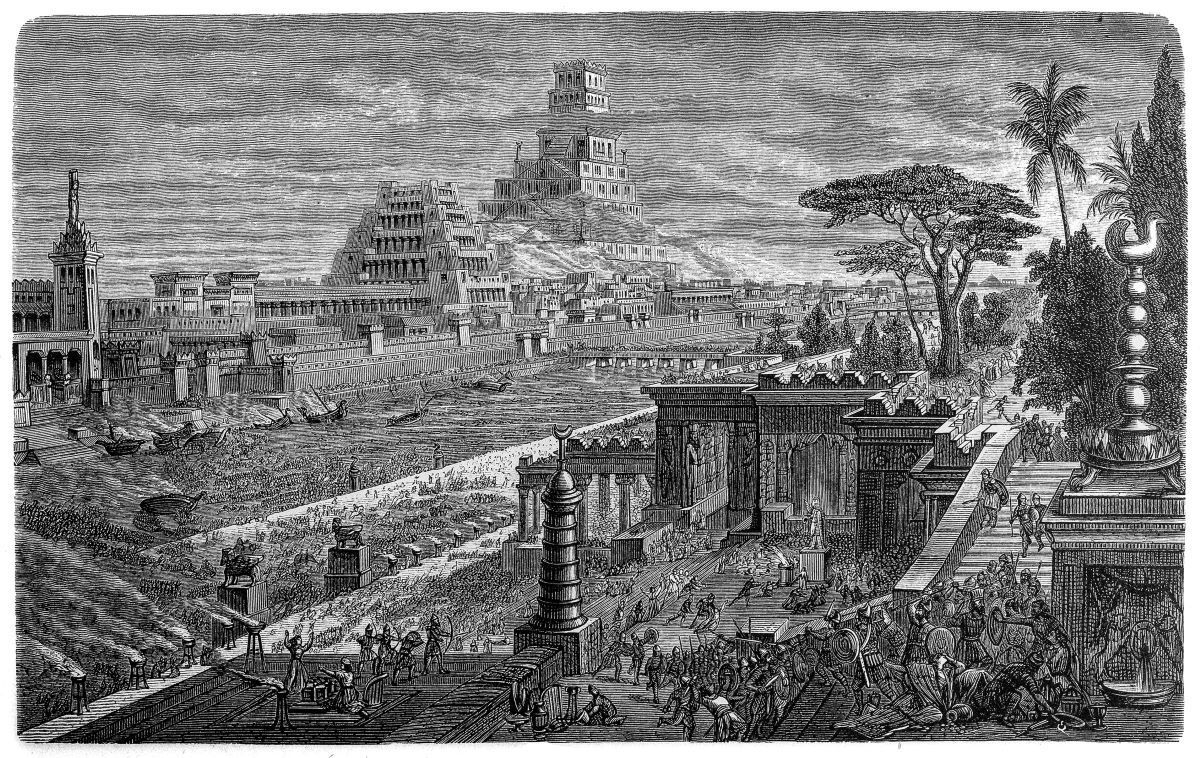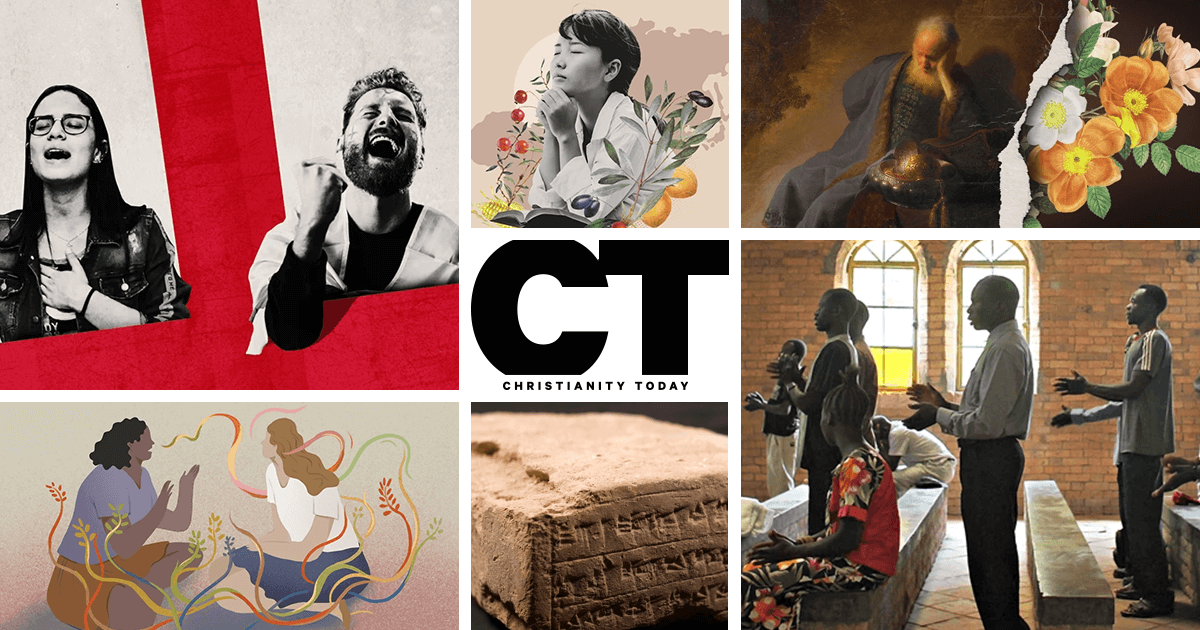
There’s a small diner downtown where I live. They make the best hot dogs. I bellied up to the bar in front of the grill, waiting for my order while the short-order cook slaved away. A gentile elderly lady arrived and sat on the stool next to me. She ordered the lunch special. She was friendly and initiated conversation, asking me what line of work I was in. I responded that I was a minister, a preacher. With a facial expression somewhat averse, she said, “Oh my, I’m not a religious person. I believe religion is to blame for most of the wars and conflicts in the world. Don’t you agree?” “Well, I believe it certainly contributed to its fair share, but true religion, Christianity,” I said, “has been responsible for every major advancement of humanity.” At that point, someone she apparently knew greeted her and interrupted us. We never got to finish the conversation.
What I said to her, however, is true.
In their book, What if Jesus Had Never Been Born, the late Dr. D. James Kennedy and Jerry Newcomb provide a historical overview of the extraordinary positive contributions Christianity has made through the centuries. They cite the impact it’s had on the value of human life, helping the poor, education, the founding of America, civil liberties, science, economics, health and medicine, morality, arts, and music.
Nevertheless, as Kennedy and Newcomb note, “Despite all the good the Church has done and continues to do, we’re reminded ad nauseum about the Crusades, the Inquisition, and the witch hunts — as if they are the sum total of the Christian record in history.”
To explain the excesses of un-Christian acts like the Crusades, the authors go on to “underscore the necessity of distinguishing between Christendom and Christianity.” They write:
“Christianity is comprised of those who have repented of their sins and truly believe in Jesus Christ as their Savior and Lord. In times past Christendom was comprised of those people living in ‘Christian’ territories. Today, Christendom is comprised of true Christians and those professing Christians who have never experienced the saving grace of Christ. Many members of Christendom have lived lives that were totally unworthy of the name Christian.
“When people are unregenerate — that is if their hearts are not changed by Christ — they are prone to do all sorts of ungodly and inhuman things. It doesn’t matter whether they are atheistic Communists or clerics of the Church. And in the case of unregenerate Church leaders, their evil actions have brought the blame upon Christianity.
“There is a Church visible (Christendom) and there is a Church invisible (true Christianity). The church building in which we worship is part of the visible church of Christ. It may be seen by any passerby or any person who would come to look at it. Its membership consists of all who have made a profession of faith in Jesus Christ. However, the Bible points out that the visible Church is not the real Church of Christ. The real Church of Christ is invisible, and it consists of all who truly belong to God as His elect — all those who will ever be regenerated by the Holy Spirit. Judas Iscariot was a member of the visible Church of Christ, but not the invisible.”
In Jesus’ parable of The Wheat and Tares (Matthew 13:24-30), a farmer sows good seed into his field, but an enemy secretly sows tares among them. Both sprout and exist together, but at harvest time the farmer instructs his workers to first gather the tares and burn them, and then collect the wheat for storage. This symbolizes the final separation of the righteous (wheat) from the wicked (tares) at the end of the age. This teaches that in the Church there exist alongside each other those who genuinely believe and those who for various reasons have never truly been transformed by the grace of God.
The Lord knows who the real Christians and the non-real professing Christians are. Nevertheless, one thing is absolutely certain, it is the professors of faith and not the possessors of faith who have typically disgraced the Church. This is not to say that true Christians never have. Sometimes genuine Christians can be on the wrong side of an issue and grossly sin. Still, this is not characteristic of them throughout the centuries. It’s been just the opposite.
As Kennedy and Newcomb put it, Christendom produced the injustice; true Christianity helped bring about the change. For instance:
“Christendom produced the terrible witch hunts. Christianity produced Frederich von Spree, who risked jail for speaking out against it in Europe, and Rev. Increase Mather, who ended it in Salem, Massachusetts.
“Members of Christendom, along with corrupt Muslims in North Africa, initiated the slave trade to the New World. Christianity produced William Wilberforce and the Clapham Sect that fought successfully to abolish the slave trade and President Abraham Lincoln, who helped end the practice of slavery in the United States.
“Christendom produced the Spanish Conquistadors, who decimated thousands in the New World. Christianity produced Bartholomew de las Casas, the Jesuit priest who spoke forcefully for the rights of the Indians.
“Christendom produced the colonization of the Third World, which sometimes involved oppression and exploitation. Christianity produced William Carey, Adoniram Judson, and David Livingstone, who did so much good to elevate these people from darkness.
“Within Christendom was produced the slums and inhumane treatment of child laborers of 19th century England. Christianity produced Lord Shaftesbury who worked tirelessly to improve their lot and to protect children through child labor laws.
“And on it goes, even to our own day. Many bad things are produced within the domain of the visible Church, but Christ can counterbalance these sins by working in the lives of even a faithful few.”
This is so important to understand as Revelation chapter 17 is opened.
Chapter 16 spoke of God’s seven bowls of wrath, and at the outpouring of the last bowl, one might expect the next event chronologically to be Christ’s return. However, in chapter 17, the scene cuts back to Babylon to provide indispensable information and context about its judgment. This pause and look backward is essential for understanding the broader narrative of Revelation and the ultimate defeat of evil forces before Christ’s return.
Let’s look at the first six verses of Revelation chapter 17, which read:
“One of the seven angels who had poured out the seven bowls came over and spoke to me. ‘Come with me,’ he said, ‘and I will show you the judgment that is going to come on the great prostitute, who rules over many waters. 2 The kings of the world have committed adultery with her, and the people who belong to this world have been made drunk by the wine of her immorality.’
‘So the angel took me in the Spirit into the wilderness. There I saw a woman sitting on a scarlet beast that had seven heads and ten horns, and blasphemies against God were written all over it. 4 The woman wore purple and scarlet clothing and beautiful jewelry made of gold and precious gems and pearls. In her hand, she held a gold goblet full of obscenities and the impurities of her immorality. 5 A mysterious name was written on her forehead: “Babylon the Great, Mother of All Prostitutes and Obscenities in the World.” 6 I could see that she was drunk — drunk with the blood of God’s holy people who were witnesses for Jesus. I stared at her in complete amazement.”
As previously discussed in Revelation chapter 14, some scholars interpret Babylon to be Rome, because of its political dominance over many nations, its luxury and riches, and its ruthless persecution of Christians. Other scholars see Babylon as apostate Jerusalem, which not only crucified the Savior but victimized and martyred Christ’s followers. Still, others understand Babylon as the literal rebuilt city of Babylon, which will become the headquarters for a powerful and corrupt religious and political system, aligning with the characteristics described in Revelation 17.
The view which seems to have the most merit though, is that Babylon is a symbol of all the false religious systems wed with political ones throughout history. Whatever Babylon is in the final days, it is the apex of a values system that dictates both politics and religion, merged into a federation of world unity. This system opposes God and directs people away from true religion, true Christianity, and genuine faith in Christ, which leads to a transformed life and distinctive living by the teachings of the Word of God.
To understand the Babylon of Revelation, one has to first know about the historical city of Babylon as described in the Old Testament. Babylon became a magnificent and influential city in Mesopotamia, located in present-day Iraq. It was known for its advanced civilization, impressive architecture, its legendary Hanging Gardens, and considered one of the Seven Wonders of the Ancient World.
In the Bible, Babylon is representative of a rebellious and idolatrous mindset that opposes God’s authority and seeks self-exaltation. It embodies worldly values, materialism, pride, and opposition to divine truth, making it a symbol of spiritual and moral corruption.
The first Babylon was the city of Babel and was established by a mighty king whose name was Nimrod. The late Dr. M.R. DeHaan, formerly the teacher of the nationally broadcast Radio Bible Class, provides a basic explanation of Babel, the first Baylon’s connection to the one in Revelation:
“In Genesis 10 and 11 we have a detailed record of the rise of that political-religious system known to Bible students as Babylon. We are told that after the Flood the descendants of Noah, forgetting the lesson they should have learned, turned from God and moved to a region to the north of Palestine in the vicinity of the original Garden of Eden. It was called the land of Shinar and was in the region of the Euphrates River, one of the three principal rivers of the Garden of Eden.
“A certain man, Nimrod by name, seems to have been the leader of this great movement, and supported by a great company of followers, he began the building of a city which was to become one of the seven great wonders of the world…
“Then we are told that all the world was at that time of one speech. Men sought a federation of power that would make them secure in the earth for they said:
“‘Let us build us a city and a tower, whose top may reach unto Heaven; and let us make us a name, lest we be scattered abroad upon the face of the whole earth’ (Genesis 11:4).
“Here is the picture. Satan, in seeking to oppose the plan of God for a Kingdom and a Church, attempted to establish a kingdom and a church of his own. Nimrod was the first who attempted such a program on a grand scale. The name Nimrod means ‘rebel.’ He sought a world federation of religions centered at the Tower of Babel…The word ‘Babel’ means literally ‘the gate of God.’ That is what man called it. It was a denial of God’s way to heaven. The Lord had clearly revealed his way in Genesis 3:21 when he slew an animal, shed its blood, and used the skins to clothe the first sinners.
“God thus indicated the way of salvation. Man must be saved through the shedding of the blood of an innocent substitute and by the death of another, but the Babylonians denied this and added their own works and built a Tower that was to be a way to heaven and God, not by blood and death, but by the work of man’s hands. That was the spirit of Babylon. It was a denial of God’s way of grace. The dream of man separated from God, is a man-made way of salvation by works, a universal federation of nations under one dictatorial leader, a universal church that denies the blood, and a universal language dominated by a superstate, which will formulate the policies of both government and religion.
“The plan, however, did not succeed…”
The Scripture says that God intervened by coming down and confusing the languages so that the project for the Tower and everything it represented had to be abandoned and the people separated and dispersed and began to “fill the earth” as the Lord had previously commanded them.
DeHaan goes on to explain:
“Nimrod had called Babel ‘the gate of God.’ God came down and called it ‘confusion’ and blasted the plans for a superstate, but the spirit of Nimrod lived on in Babylonianism. Soon it asserted itself again in Egypt where Pharoah attempted to establish his superstate. Later Nebuchadnezzar made a similar attempt followed by Medo-Persia, Alexander, the Caesars, Constantine the Great with his union of church and state, Napoleon, Kaiser Wilhelm, and more recently, Hitler. Today the dream of mankind is still a federation of nations, a super organization — without God — that will bring the utopia of peace of which men have dreamed since the days of Nimrod.
“Satan’s final attempt to fulfill this dream will occur in the Tribulation after the Church is gone. When the true Church has been caught away [in the Rapture], Satan will produce the personal Antichrist, the false Christ of whom Nimrod was only a shadow, who will succeed in setting up a great super federation of nations to guarantee safety for the world…
“Man’s precarious position because of recent developments in the science of warfare has led them to believe that a strong federation is the world’s only hope. Not knowing or believing that the only hope for this old world is the coming of the Prince of Peace, they seek to bring it about by their own methods: one global policy, one global church, one global speech. Then will follow the catching away of the Church, and for a brief time Satan will rapidly attempt to fulfill his plans. The beast will appear and the woman, the false church of the Antichrist, described as ‘mystery, Babylon the Great.’”
DeHaan wrote those words in 1945, but they are as relevant as ever. Moreover, they simplify the subject and get to the heart of the matter.
The institution of the Church has its many challenges nowadays: declining attendance, changing cultural values, scandals involving church leaders, economic pressures, technological changes that complicate maintaining a sense of community, the rise of secularism and atheism, etc. Nevertheless, nothing has diminished the Church’s vitality and significance more today than a creeping apostasy.
Mainline denominations have moved away from traditional Christian beliefs and doctrines and embraced more liberal or progressive theological perspectives. These include denying the infallibility, inerrancy, and authority of Scripture, which have led to reinterpreting biblical teachings on core doctrinal issues like the divinity of Christ, his substitutionary death for sinners, his bodily resurrection, and salvation by grace through faith alone.
Some have departed from sound doctrine and abandoned the Bible’s teaching on human sexuality and proper sexual ethics, ordaining LGBTQ as clergy, performing same-sex marriages, and defending transgenderism. Too many Churches are aligned more with secular culture and values, having seriously compromised their Christian identity and committing spiritual adultery.
When Jesus comes again in the Rapture, he will take out of this world his faithful followers to Heaven — those who make up the true Church. Then the leftovers within the visible Church — the tares — those who were a part of the institution but never actually changed by a personal relationship with Christ as Savior and Lord, will remain. Ultimately, this crowd of religionists, presided over by unregenerate religious leaders, will be absorbed into an ecumenical body of a counterfeit faith that will be global and political, Mystery Babylon as it reads in most translations, or “Babylon the Great, Mother of All Prostitutes and Obscenities in the World.”
True Christianity, rooted in the teachings of an orthodox biblical worldview, has historically been a force for tremendous good, contributing positively to human civilization and society on numerous levels. But Mystery Babylon, with its spiritual harlotry, has been the author of immeasurable suffering, and the damnation of nations and souls through the ages. In the end, it is intricately connected to the events leading up to Armageddon.
Rev. Mark H. Creech is Executive Director of the Christian Action League of North Carolina, Inc. He was a pastor for twenty years before taking this position, having served five different Southern Baptist churches in North Carolina and one Independent Baptist in upstate New York.




























![[Video] More – Aghogho » GospelHotspot](https://gospelhotspot.net/wp-content/uploads/2024/04/More-Aghogho.jpeg)
















